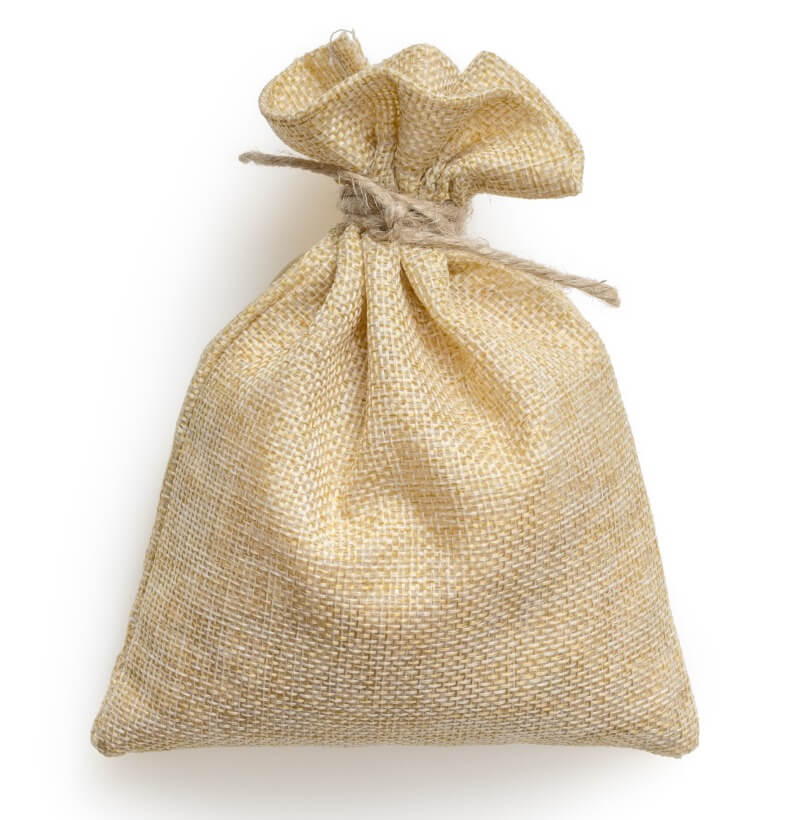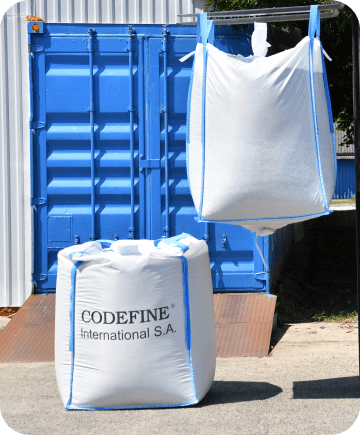Home » Posts Page » Blog » Is Jute Bag Biodegradable?

Jute fiber is a wholly natural material, sourced from the plant it shares its name with. Native to India and Bangladesh, these plants thrive in warm, humid conditions and can grow to heights of more than three meters.
Jute fiber itself is found beneath the bark and needs to be harvested at just the right time to ensure the best quality. If it’s harvested too early, the fiber tends to be brittle. If it’s harvested too late, the fiber is much stronger but doesn’t boast the silky sheen that jute is famous for.
Once harvested, these fibers are spun into threads. Often referred to as jute burlap, it’s this material that’s used to produce all manner of jute products.
Are you looking to make more sustainable choices? If so, it’s time to rethink the materials you’re using. When it comes to eco-friendliness, few materials come close to matching the green credentials of jute. It’s a remarkably self-sufficient crop, requiring very little hands-on farming beyond harvesting.
Jute also has far less of an environmental impact than other organic materials like cotton. One important factor is the amount of water required to grow jute. Cotton crops demand constant irrigation, while jute requires comparatively little. There’s also no need to use pesticides when growing this fibrous plant.
Are jute bags eco-friendly? If none of the above has convinced you, read on for a few more reasons why jute is one of the greenest materials on the planet.
In ideal conditions, the jute plant can fully mature in as little as four months. What’s more, this brief cultivation period still produces impressive yields. With less demand for land, jute cultivation puts less of a strain on the ecosystem. This saves natural habitats from being cleared to make way for farmland, protecting the plant and animal species that live there.
Crop rotation has been a staple of agriculture for thousands of years. However, as jute can enrich soil fertility, it lends itself very well to monoculture. These soil-enhancing qualities in turn benefit any future crops planted on the same land. Whether it’s another crop of jute or something else entirely, the final yield will typically be richer in nutrients and more resilient to pests.
Are jute bags biodegradable? The answer is yes. Jute will break down naturally within a couple of years. In fact, many jute products are suitable for home composting. Even if disposed jute ends up in landfill, this has far less of an environmental impact than other materials.
This fast-growing fiber can be used to manufacture a wide range of things, with jute tote bags being among the most popular. Along with the popular jute tote bag, the fiber can be woven into strong threads like twine or braided to form rope.
It’s also widely used in the agricultural sector. Thanks to its durability and impressive breathability, eco-friendly jute bags are a good choice for storing food and other perishable items. They even hold up well when used to transport goods across long distances.
Jute has also become a popular choice for manufacturing soft furnishings and home decor pieces. Head to any online retailer, and you’ll find a wide range of jute laundry baskets, rugs, hanging artwork, and more.
When it comes to shopping bags, there’s no denying that conventional plastic is a no-go. Many countries have banned the use of plastic bags outright, moving to more renewable materials instead.
Paper bags are undoubtedly a better choice for the planet than plastic ones, but they have their limits. They’re not particularly durable and can rarely be reused. This leaves jute bags as the obvious option.

Cotton might still be the most popular organic fiber in the world, but it’s quickly losing ground to jute. Requiring little in the way of pesticides, irrigation, and fertilization to thrive, this low-maintenance plant is redefining agriculture in South Asia, opening up economic opportunities to local communities. Are you serious about making your business a more sustainable one? Switching to eco-friendly products like jute bags is an easy way to lessen the environmental impact of your operation.
If you’re looking for quality jute bags, you’ve come to the right place. Codefine has been supplying sustainable jute packaging to the industrial and agricultural sectors since 1959. With decades of experience, our hessian sacks and jute bags are among the best on the market. What’s more, we’re committed to supporting local growers engaged with sustainable cultivation. Worried about the performance of jute bags? You don’t need to. With a high-breathability index, our bags guarantee the safe storage of delicate products, while their stretchability makes them an eco-friendly choice for storing and transporting all manner of items.
Learn more about our jute packaging solutions today. Alternatively, take a look at our full product range to see how else Codefine can help you. Have a question? Get in touch with the team.